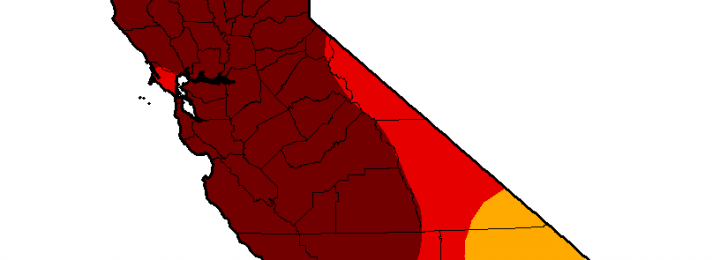-

FiveThirtyEightScience published an interesting article this week on using statistics to determine which parts of the US had the most and least predictable weather. They used a combination of ten different variables including max and min temperature, precipitation, winds and severe weather to determine how changeable each value was. The areas with the highest amount…
Posted in: Interesting weather images -

Heavy rainfall will plague the Northwest and Northeast of the US in the next week, but the Southeast will see mostly light amounts of precipitation. The only exception is the eastern half of North Carolina which will see rain associated with the storm that will be affecting the Northeast. Somewhat enhanced precipitation may also be…
Posted in: Climate outlooks -

The Washington Post published a story today based on a study by the American Geophysical Union that explores the return period of the latest drought in California. The study, based on tree ring analysis, shows that the current exceptional drought is the worst in about 1200 years based on temperature and precipitation reconstructions. You can…
-

Soil and climate are two of the key components needed to determine what types of crop to grow and how well they will do after planting. Today is World Soils Day, the kickoff to 2015 as the International Year of Soils. You can read the official declaration from the United Nations and an overview video…
Posted in: Climate and Ag in the news -

The rains returned to California with a vengeance this week, with many areas of the state receiving several inches of rain. I previously discussed the “Pineapple Express” and the stream of moisture which feeds into the Pacific coastal areas to create intense rainstorms. You can read one description of the recent storms here. Many climatologists…
Posted in: Climate and Ag in the news -

The State Climate Office of North Carolina posted a blog this morning describing some potential problems they were having with relative humidity sensors on their automated weather network. The sensors were reading values much lower than is usually seen, and they were concerned that the observations might be bad. The blog describes what they did…
Posted in: Climate and Ag in the news -

November 2014 was one of the top five coldest Novembers on record for many stations across Georgia. Statewide, this is also likely to be in the top five coldest Novembers on record, although a final value has not yet been determined as observations continue to come in. Precipitation across the state ranged from well above…